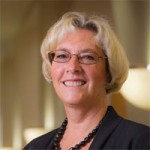This article is more than 5 years old.
This will be my last post, since tomorrow will be limited to staying in the hotel room to finish up Jill’s version of the ZSR Annual Report before leaving for the airport. So, finishing up on Sunday… The first program of the afternoon was “Information Technology and Communities of Color:Issues and Opportunities in a Global Context,” where our own Sarah Jeong was selected to represent the Asian/Pacific American Library Association on the panel that included all five ethnic caucuses of ALA.Sarah spoke eloquently on how Asian/Pacific American communities are divided in terms of language and technology proficiency – often along generational lines.
Perhaps the best session I attended all conference was “Improving User Services through Open Source Solutions,” which Wanda attended also.For my money, Joe Lucia is one of the most clear-thinking library leaders in the profession today.His library produced VuFind, which we are about to implement this fall (I hope) as a discovery layer to our online catalog. He tends to speak his mind and pull no punches, though he said he had toned down his rhetoric somewhat from previous speeches.Basically, he said that the time is now for open source in libraries.Libraries are a noble part of the “Commons” as intellectual and physical space that is shared by all and consumed (used up, not just used)by none. Open source software is similarly congruent with the commons philosophy, in that it can be shared by all and consumed by none. Joe bluntly said that it is not an option to continue to wait for open source to get traction.There are many roadblocks to progress, chief among them timid leadership (he gently chided ARL libraries for failing to take bold leadership and moving in group-think) and a self-destructive addiction to legacy data and standards. What we can do is take up our courage and contribute to an open source community, investing resources formerly devoted to our (detested) legacy systems. He foresees that in three years, 30% of libraries will be invested in open source development. Other speakers in the panel included my former colleague Randy Dykhuis of the Michigan Library Consortium who worked with Equinox to provide affordable automation services with the Evergreen system.Another speaker from the WALDO group of academic libraries in the greater New York metropolitan area described working with LibLime to adapt Koha. The final speaker was from a small public library in Pennsylvania who has been using open source for 10 years. It occurred to me that there were two separate models represented in the panel:those who contributed code directly to the open source product and those who worked with a vendor to support them. There is probably room within the movement for both.
This morning (Monday), a group of us attended Roz’s presentation on LibGuides and other web guide software for libraries. They did a great job and it’s too bad more people weren’t in attendance. From there, I attended the session, “Pay Attention to Your Users! Conducting Qualitative Research to Reinvent Library Services.”The points were reassuringly familiar, as I learned how to do qualitative research in my doctoral work and then applied it in our joint study with UNCG, all in the interest of influencing library services.Good stuff.
After lunch with my good friend Toni Garvey from the Phoenix Public Library (where she had to cut her system budget by 30%) I attended the ACRL President’s Program.It was advertised as a four hour program (scary) on advocacy, but at least it was in my hotel. The facilitator was very, very good (known as the Advocacy Guru) and made an intimidating subject seem doable. I’ve never approached a member of Congress but she makes it sound possible.
I’ll close with a shot of my favorite building in the Chicago skyline, the red CNA Center. Don’t know why, but I’ve always liked it best, followed closely by the building first known as Standard Oil, then Amoco, now Aon.


3 Comments on ‘ALA with Lynn (Part IV)’
Thanks for the “shout out” on the ACRL advocacy program! I’m glad you enjoyed it and hope you’ll feel inspired to go forth and advocate 🙂
Stephanie Vance
The Advocacy Guru
Of course we are going live with Vufind this fall! I love to hear chatter about libraries going OS. . .
Between your post comments, and Stephanie’s quick response, I’m feeling motivated to advocate! 🙂